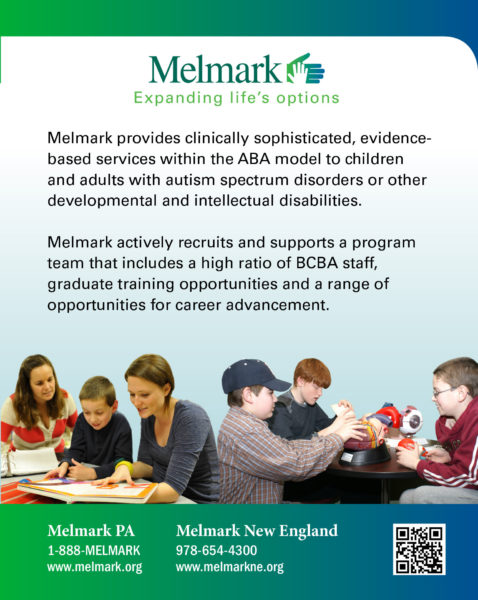Individuals credentialed as Board Certified Behavior Analysts (BCBA) are required to obtain 32 hours of continuing education every two years. The purpose of the continuing education “is to ensure certificants engage in activities that will expand and maintain their behavior-analytic skills” (see https://bacb.com/continuing-education/). According to Code 1.03 Maintaining Competence through Professional Development, professional development is also an ethical obligation for behavior analysts (BACB, 2014). Carr and Briggs (2010) also indicate the Association for Behavior Analysis International (ABAI) position statements regarding effective treatment and education support the need for behavior analysts to participate in continuing education activities.

Mary Jane Weiss, PhD, BCBA-D

Shawn P. Quigley, PhD, BCBA-D
Reading scholarly literature is a continuing education activity that may sustain or expand competence. Carr and Briggs (2010) evaluated three tasks for maintaining contact with the literature: searching the literature, accessing journal content, and contacting the contemporary literature. The purpose of this article is to discuss how a mid-size human service organization has conceptualized supporting the professional development of its employees. Some of the practices are developed in response to Carr and Briggs, and others are based upon the experiences of the authors and practices at the organization. Melmark recognizes that every employee has opportunity for professional development, even those without a credential. However, the strategies discussed in this article are intended for individuals who already possess a credential associated with a master’s degree or higher.
Searching and Contacting Scholarly Literature
Each of the subheadings below describe a process for searching and accessing scholarly literature for employees. Some of the strategies are restricted by job duties due to resource constraints or other factors (e.g., affiliation with a university). Additionally, some tasks are cost prohibitive to provide to every employee (i.e., access to electronic database) and are limited to individuals with clinical responsibilities that can be enhanced with additional resources. The process of searching and accessing often overlap; therefore, the processes have some similarity.
Searching the Literature – All employees are provided an algorithm for searching the literature. 1) Internet search engines are used first for searching the literature. 2) The organization maintains hard copies of previously purchased journals. The journals can be hand searched or an electronic search on the journal website can be performed. 3) BCBAs can access an electronic database and journal subscriptions via their online portal. Similar features might be available through other credentials too. 4) Employees might access search engines via alumni association benefits or if they are currently enrolled in a university. 5) Some employees are provided access to an electronic database (i.e., PsycARTICLES®) and can search materials through that resource. 6) Any individual can request information from the behavior analytic community via the teaching behavior analysis and ethics and applied behavior analysis listservs.
Journal Access – All employees are provided an algorithm for accessing the literature. This algorithm is often completed in conjunction with searching the literature. 1) Internet search engines can locate desired literature from many sources (e.g., available online via author websites, available online through databases like PubMed Central). 2) The organization maintains hard copies of previously purchased journal issues. Previously published articles in these journals are available in hard copy. 3) BCBAs can access scholarly works via their online portal. Similar features might be available through other credentials, too. 4) Individuals might access the literature via alumni association benefits or if they are currently enrolled in a university. 5) Some employees are provided access to an electronic database (i.e., PsycARTICLES®) and can access materials through that resource. 6) Any individual can request information from the behavior analytic community via the teaching behavior analysis and ethics and applied behavior analysis listservs.
Library – Melmark has begun a library where scholarly books, videos, manuals, and other materials are purchased and kept. Many of the materials are related to clinical services (e.g., implementation guide for a particular intervention), job duties (e.g., evidence-based supervision), and training opportunities (e.g., textbooks for behavior analysis classes) to facilitate job performance and to minimize employee cost of training opportunities. Materials are purchased and managed through the Professional Development Department. Access to the materials are managed in a similar manner to local or university libraries (e.g., database, sign-out, return date, fees for non-returned items).
Monthly Professional Development Meetings
Reading scholarly literature is an important aspect of professional development, but it might not always lead to application. Or, the information and practices do not readily extend beyond the professional who experienced the learning. To remove these barriers and enhance learning opportunities, Melmark has begun to plan monthly professional development meetings. The meetings have recurring themes each quarter: journal article review, treatment / research protocol review, and conference summary reviews. The journal article review meeting provides employees an opportunity to review relevant literature on a salient topic. The treatment / research protocol review is an opportunity for employees to showcase a treatment protocol or research protocol that is in place or being developed. Other employees can determine if the protocols are applicable for individuals they support, or if they are in line with research goals they are pursuing. The conference summary review allows employees an opportunity to communicate headline information about noteworthy presentations from recent conferences they attended.
Each quarter the meetings are repeated with the same themes but with different presentations from other employees. The intent is to spread information from professional development opportunities to other employees, thereby increasing their professional development and support of individuals served. It is also hoped these meetings become a breeding ground for ideas of research and practice. The logistics of the meetings (e.g., schedule, room, circulating materials) are handled by the Professional Development Department. Most importantly though, a departmental employee coordinates each meeting with another department so responsibility of content delivery is rotated across departments throughout the year. This is intended to increase involvement and buy-in as departments choose topics that are relevant to them and across Melmark. The content of the meetings requires employees to be actively engaged in professional development opportunities (e.g., reading literature, attending conferences) and conducting research, which is another process in and of itself.
Expert Speaker Series
Every year Melmark coordinates a series of speakers known as the Expert Speaker Series. Four to six speakers a year are asked to provide a lecture-style information session for Melmark employees and community members. The topics vary based upon the needs of the organization and community, but there is typically one presentation geared toward ethical considerations and another toward effective supervision practices. These two topics are emphasized once every two years to support behavior analysts to meet the continuing education requirements in these specific areas each certification cycle.
In addition to the presentation, Melmark is exploring additional methods for increasing the professional development opportunities within these events. The speakers have provided technical assistance for specific clients, evaluated program effectiveness, and are now helping create resources specific to Melmark initiatives. For example, Melmark provides the necessary supervision for individuals seeking a BCBA credential. In an effort to create a supervision curriculum, some expert speakers are helping to create learning series in a specific content area and provide the initial supervision for BCBAs to develop content knowledge and skills in the content area, thereby expanding scope of competence and ability to train others.
Shawn P. Quigley, Ph.D., BCBA-D, is Senior Director of Clinical Services and Professional Development, and Mary Jane Weiss, Ph.D., BCBA-D, is Senior Director of Research, at Melmark.
Melmark is a multi-state human service provider with premier private special education schools, professional development, training, and research centers.We are committed to enhancing the lives of individuals with autism, intellectual and developmental disabilities and their families by providing exceptional evidence-based and applied behavior analytic services to every individual, every day.
References
Behavior Analyst Certification Board (2014). Professional and Ethical Compliance Code for Behavior Analysts. Retrieved from http://bacb.com/wp-content/uploads/2015/08/150824-compliance-code-english.pdf
Carr, J. E. & Briggs, A. M. (2010). Strategies for making regular contact with the scholarly literature. Behavior Analysis in Practice, 3, 13-18




